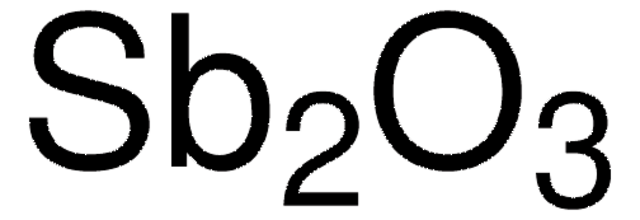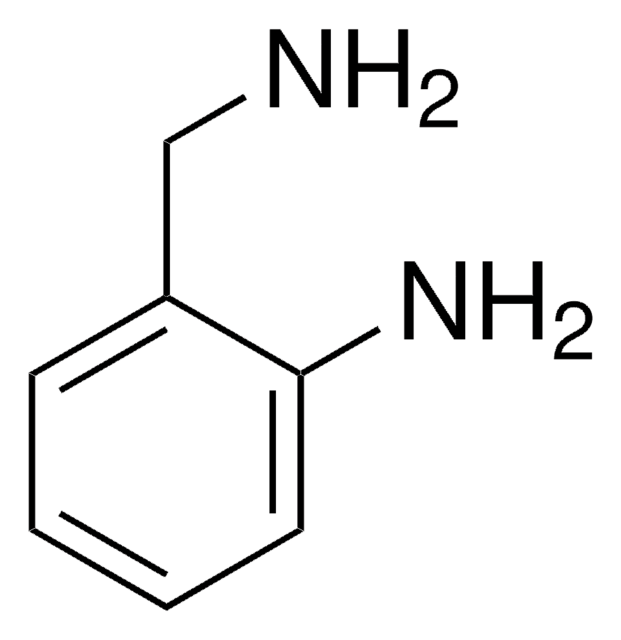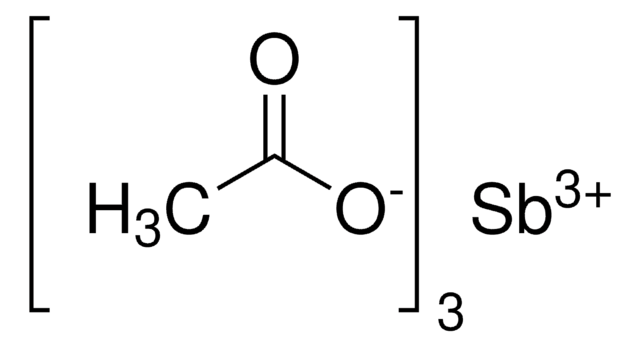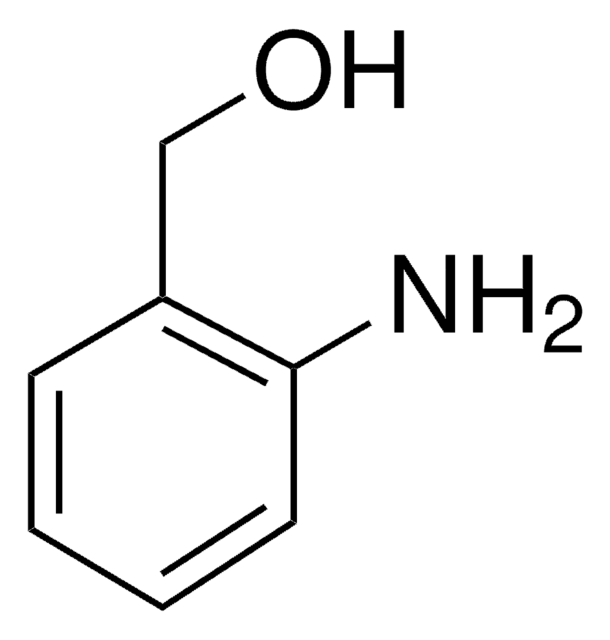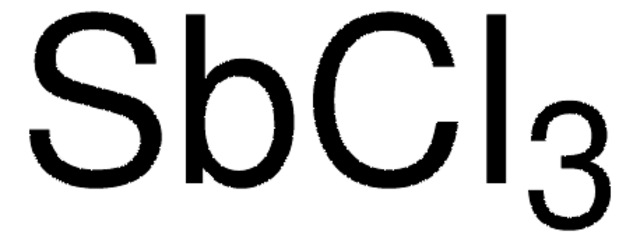202649
Antimony(III) oxide
99.999% trace metals basis
Synonym(s):
Diantimony trioxide
Sign Into View Organizational & Contract Pricing
All Photos(1)
About This Item
Linear Formula:
Sb2O3
CAS Number:
Molecular Weight:
291.52
EC Number:
MDL number:
UNSPSC Code:
12352300
eCl@ss:
38080202
PubChem Substance ID:
NACRES:
NA.23
Recommended Products
Quality Level
Assay
99.999% trace metals basis
form
powder
bp
1550 °C (lit.)
mp
655 °C (lit.)
SMILES string
O=[Sb]O[Sb]=O
InChI
1S/3O.2Sb
InChI key
ADCOVFLJGNWWNZ-UHFFFAOYSA-N
Looking for similar products? Visit Product Comparison Guide
Related Categories
Application
Selective ammoxidation catalysts for such reactions as conversion of toluene to benzonitrile or propylene to acrylonitrile were prepared by a sol-gel method from V2O5, Sb2O3 and high purity hydrogen peroxide.
Features and Benefits
Useful component of new materials. J. Am. Ceram. Soc. 1995, 78, 1179. J. Mater. Chem. 1995, 5, 75.
Signal Word
Warning
Hazard Statements
Precautionary Statements
Hazard Classifications
Carc. 2
Storage Class Code
13 - Non Combustible Solids
WGK
WGK 1
Flash Point(F)
Not applicable
Flash Point(C)
Not applicable
Certificates of Analysis (COA)
Search for Certificates of Analysis (COA) by entering the products Lot/Batch Number. Lot and Batch Numbers can be found on a product’s label following the words ‘Lot’ or ‘Batch’.
Already Own This Product?
Find documentation for the products that you have recently purchased in the Document Library.
Customers Also Viewed
Brazdil, J.F. et al.
Chemistry of Materials, 10, 4100-4100 (1998)
P M Hext et al.
Journal of applied toxicology : JAT, 19(3), 205-209 (1999-06-11)
Diets containing antimony trioxide were fed to male and female Wistar rats of the Alpk:APSD strain over 90 days. Dose levels were 0 (control), 1000, 5000 and 20,000 ppm (equivalent to mean daily doses of 84, 421 and 1686 mg
Delia Cavallo et al.
Environmental and molecular mutagenesis, 40(3), 184-189 (2002-10-02)
The growing use of antimony (Sb) compounds in industry and the consequent increase in the number of exposed workers make it important to carry out a health risk assessment. The main goal of this study was to assess the genotoxicity
G P White et al.
Journal of occupational medicine. : official publication of the Industrial Medical Association, 35(4), 392-395 (1993-04-01)
An employee at a brazing rod manufacturing plant developed a generalized eruption of follicular papules and pustules. His job tasks included breaking up antimony ingots and melting the pieces in a crucible; he was exposed to antimony metal dust and
Ivo Iavicoli et al.
Journal of trace elements in medicine and biology : organ of the Society for Minerals and Trace Elements (GMS), 16(1), 33-39 (2002-03-07)
Antimony trioxide (Sb2O3) is used as a flame retardant in the textile industry. We carried out a study in a factory for the evaluation of antimony (Sb) occupational exposure and urinary levels in workers exposed to Sb2O3. Urinary levels and
Our team of scientists has experience in all areas of research including Life Science, Material Science, Chemical Synthesis, Chromatography, Analytical and many others.
Contact Technical Service